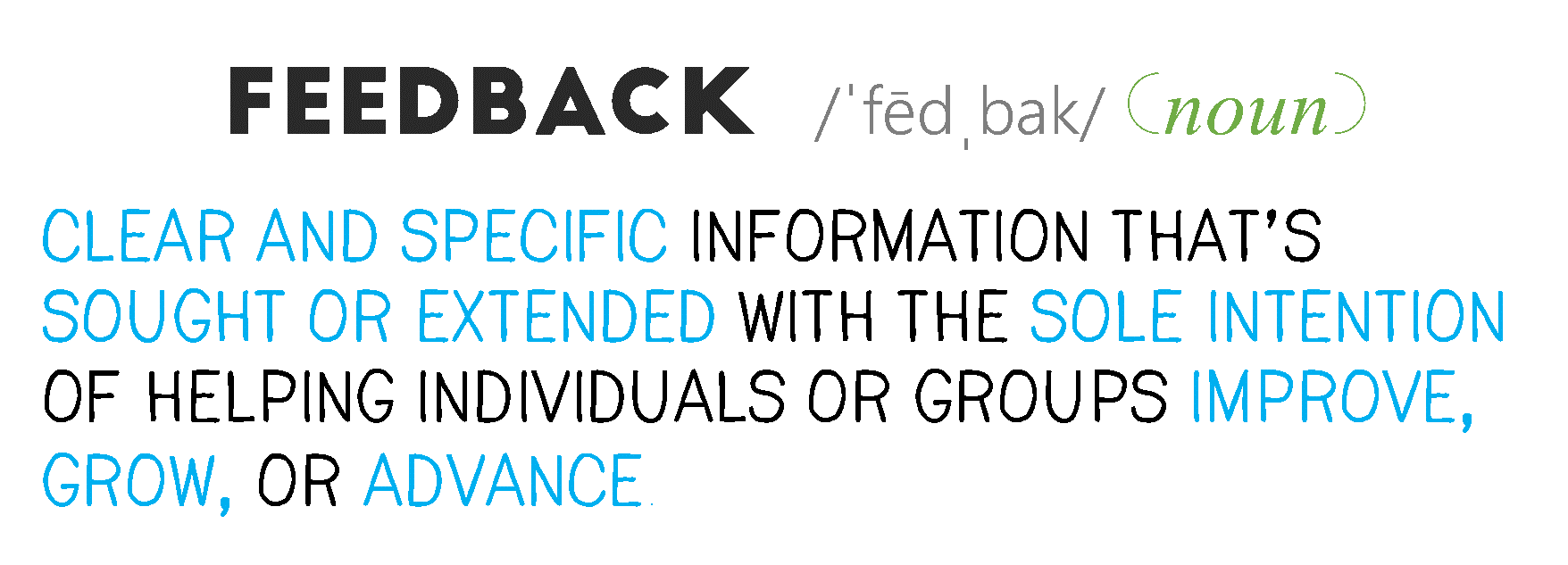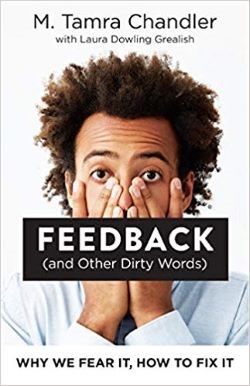New Book Release Authored
by Andersen Alumnus Tamara Chandler: Feedback (and Other Dirty Words): Why We Fear
It, How to Fix It
By
M. Tamra Chandler
, Andersen Alumnus, is the founder
and CEO of PeopleFirm LLC, one of Forbes Magazine’s 2018 “America’s Best
Management Consulting Firms” and the author of How Performance Management
is Killing Performance – and What to Do About It.
It’s time we redeem feedback. Why? Because feedback
has a branding problem — a negative reputation that has been built one lousy
experience at a time. Not only have we got feedback wrong, as humans we’re
paying a significant price for our feedback missteps and misuse.
When
we take a step back and think about feedback’s true intent, we realize that it
shouldn’t be a bad thing. If we want to improve, grow, and advance, we need
insights that help us do that. When we
get it right, feedback lifts us up, helps us understand our strengths, shows us
pathways to achieve that next step, and sometimes even changes the course of
our lives.
The
roots of feedback’s branding problem lie in the way we think about it and
experience it. Our misconceptions, bad habits, and defense mechanisms have led
us astray. To redeem feedback, we need to examine how we got here and equipped
with that understanding make a fresh start on fixing feedback once and for
all. Our fix requires a fundamental
change, a seismic philosophical shift in our thinking about feedback. To redeem
feedback, we need
a movement! A
movement that starts with you and me.
To
get our movement off the ground, we need to take these actions:
1)
Embrace a new definition
of feedback
2)
Anchor our methods in
the bedrock ideas of
trust, connection, and the three F’s of fairness, focus and frequency
3)
Build an army of
Seekers, empowered to ask for insights
Here’s our new definition:

Take particular notice of the
concept that feedback should have “the sole intention of helping.” If feedback
isn’t intended to help individuals or teams thrive and grow, they why offer it
or seek it? Equally important is tuning into what’s
not in our
definition: namely that, in our better feedback future, feedback is not
intended for evaluation, blame, or judgment. Helpful feedback inspires us to look
forward to a better version of ourselves, our organization, or our team.
To develop individuals and build
teams that thrive, grow, and operate at optimum levels of performance, we must
start with
trust. Trust is built
over time through human
connections
that are kind and supportive and that send a strong message that we’re in this
together. Trust isn’t built in a day; there is no shortcut. It’s the product of
an ongoing process that is influenced by how we show up in every conversation,
decision, and action. If we begin by building trusted connections with those
valuable people who see us at our best (and worst) every day, we’ll have a
solid foundation for our movement.
We’re launching our movement under
the banner of
Fairness, Focus, and Frequency. And as we march forward together, we plan to fly these
three F’s high and proud:
Fairness
– For feedback to work, there must be trust. If a relationship or any given exchange
is tainted with a perceived lack of fairness, feedback won’t work, and trust is
broken. While most of us have the best intentions to be fair, our human
tendency toward bias gets in our way. To operate with fairness, we need to engage
without judgment.
Focus
– Focus is a big idea delivered in small bites. In our daily lives we already
have too much information to process. For feedback to help, we need to keep it
focused. If you’re looking for some feedback, make it a focused ask for
perspectives on just one thing. If you feel compelled to tell someone they
rocked it, tell them the one thing you noticed that set the bar. If there was one
thing that someone could do to have a far greater impact, then share what you
noticed.
Frequency
– The more often we connect, the greater the trust we build. For this reason,
frequency is a critical foundation for strong, helpful feedback. Frequency accelerates
feedback; while fairness and focus fuel the engine. Frequency improves the
quality of our relationships and accelerates our learning; it tells others,
“I’m paying attention, and what you do is important and notable.”
When you embrace these three Fs,
feedback is light and easy. When feedback is fair, focused, and frequent, trust
thrives, learning happens, and everyone involved is freed to take more risks
and seek greater growth.
Why do Seekers play the most
important role in fixing feedback? The
reasons are many. Here are just a few:
- Seeking is the ultimate trust generator. It demonstrates humility, and that you value the input of others.
- Seeking helps us build connections with others and nurtures our trusted relationships.
- When you seek feedback, you’re more likely to act on it.
- When you’re seeking, you’re in control. You can request the insights you need to grow and advance according to your plan, not someone else’s.
Ready to join the movement? Imagine creating cultures in which feedback flourishes. Imagine a world where we feel safe being authentic and transparent about who we are, and just as open about the work we still need to do to be who we want to be. A world where we let go of the fear and embrace the help others offer us.

